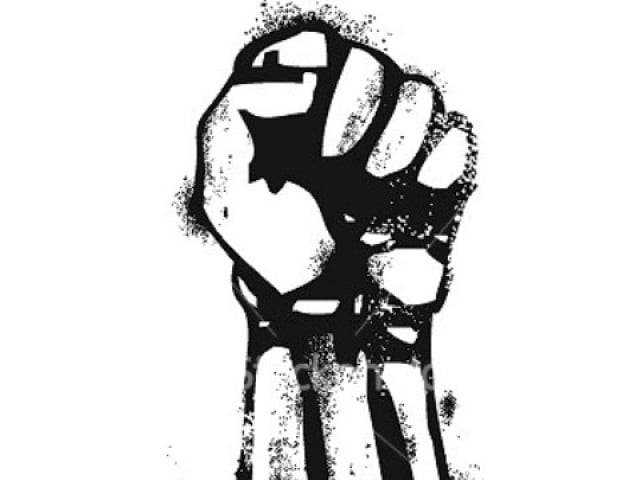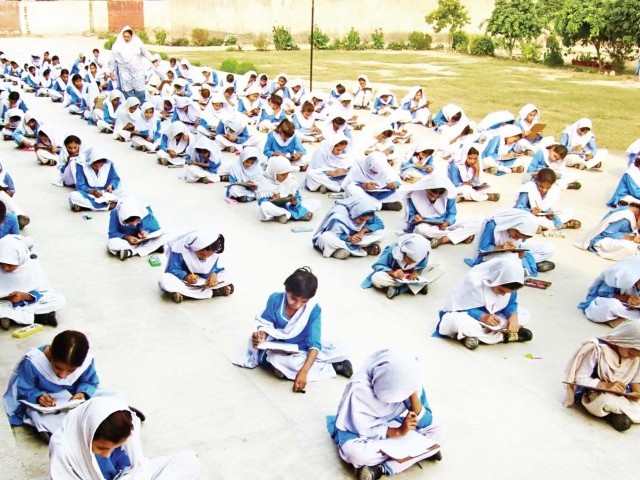Pakistan's youngest rock band
Zoya and Ali Sultan made their debut at the Young Music Competition in 2010. PHOTO: PUBLICITY
LAHORE: Biting his lower lip, 10-year-old Ali Sultan, head bangs as he drums "Don't Cry" by Guns n Roses. His sister and fellow band member, Zoya, 15, sings along as her fingers fly across the strings of her electric guitar.
Ali and Zoya debuted as a band at the Young Music Competition in the beginning of 2010 where Zoya sang Metallica's "Nothing Else Matters" and was accompanied by Ali on the drums. Bass guitarist for the band, Vicky, 19, was hired by Zoya and Ali's father and band manager, Uzair Sultan, in 2009 to complete the band, The Others, started by his children.
The Others went on to the semi-finals in the competition and this event was followed with the band getting a 20 minute slot on City FM 89 with DJ Pony. Now the two youngsters are opening for concerts two or three times a week and have even opened for Strings at the City School, the Cheapmunks, Josh and Ali Azmat.
How did these two get interested in rock music at such a young age? "I began singing and playing the guitar when I was 10 years old and Ali practised on a drumming kit, a present our parents gave him for his sixth birthday," said Zoya.
"Our father got both Ali and I separate tutors for a year. After this I began learning guitar through tutorials available online, meanwhile, Ali took up drumming again and practiced day and night. This is when we decided to play rock music together."
The brother and sister also compose their own music, "We have composed a few songs but can barely find time to concentrate on making music as we're always busy preparing for the shows our father has booked us in for," says Zoya.
Of the three band members, Ali gets the most attention as he's the youngest. "Women and girls of all ages rush up to meet him after a gig," says Zoya. Ali adds, "It makes me feel uncomfortable at times."
After completing her A levels, Zoya plans to go to the Berkeley College of Music while grade four student, Ali, said that currently completing his homework is a challenge but his mother ensures that he does, regardless of any gigs or any performances he may have the same day.
The band's name, The Others, was partially inspired by the hit TV series "Lost" but there was another reason behind the name as well.
"Being raised by a liberal-minded father and a Russian mother, Ali and I always felt a little different from the other kids we met. We will go to weddings dressed casually and eat at odd hours. Our father always encouraged us to do what we wanted, unlike a lot of other parents who only want their children to study. So, after Vicky joined, we changed our bands name from Zoya aur Ali to The Others," said Zoya.
Their parents, Uzair and Aleena, accompany their children to every gig and said, "Protecting them and seeing that they are among the right people is our responsibility."
Currently this young band is still learning and experimenting with music, but one daythey plan on writing songs. For now, they draw inspiration from established names such as Bryan Adams, Guns and Roses and Iron Maiden. They also listen to other underground bands from Pakistan with Co-Ven as their favourite. The band is already becoming popular with 1,100 fans on their Facebook.
Published in The Express Tribune, February 2nd, 2011.


















 That will make it difficult for the courts in Lahore to hold him in remand much longer.
That will make it difficult for the courts in Lahore to hold him in remand much longer.






